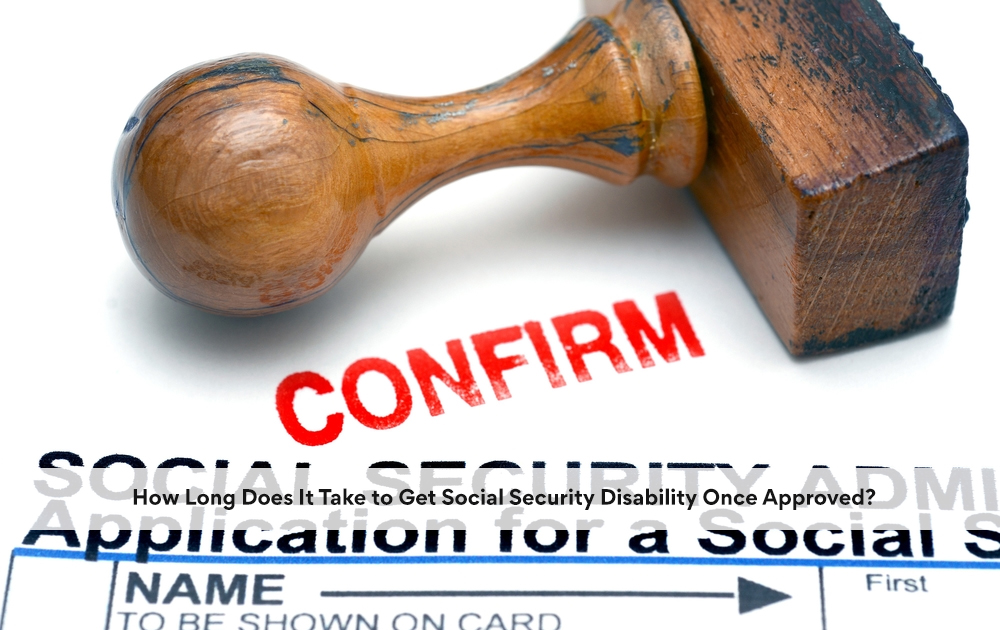You saw an announcement online about an extra payment from Social Security. It was not on the Social Security Administration's official website, but it looked like a reliable source. Now you’re wondering when you will receive the $1,800 Social Security Disability payment amount and what you need to do to get it.
If you did not hear about additional money coming to you from the Social Security Administration, consider yourself lucky. Website creators use tactics, including fake news about extra money from the federal government, to lure people to their sites. You could have been on a website asking you to contact them and provide personal information to establish your $1,800 Social Security payment eligibility.
Before you do anything based on something you find online, read this information from the disability professionals at the Clauson Law Firm, PLLC, about Social Security benefits and avoiding scams. You’ll find an explanation of the unsubstantiated claims of $1,800 payments from Social Security and the real changes in store for you from Social Security in the upcoming year.
Should You Expect Extra Money This Year From Social Security?
The Social Security Administration is generally known for managing the program that pays retirement benefits to retirees, but it also administers two disability benefit programs. The Social Security Disability Insurance program pays disability benefits to individuals unable to work because of disabling medical conditions before retirement. SSDI benefits automatically convert to Social Security retirement benefits when disabled workers reach full retirement age.
The other program administered by Social Security is Supplemental Security Income. SSI is available to adults and children. Monthly benefits are available to people with limited income and assets or resources who are blind or otherwise disabled, and those who are 65 or older.
The SSDI program does not have income and resource limitations like the SSI program. Instead, you must have worked long enough and recently enough at jobs or through self-employment and paid Social Security or self-employment taxes on the earnings or income.
Whenever there is an upcoming change in SSDI, SSI, or retirement benefits, the Social Security Administration announces it through a variety of methods, including:
- Letters sent directly to recipients.
- Emails and text messages to benefit recipients who signed up to receive them.
- Press releases to news and media outlets.
- Announcements and detailed information posted on the Social Security website.
An extra payment and $1,800 Social Security payment eligibility would generally appear on an official government website and in letters mailed to all recipients before you would find it on other websites if it were real. If you have questions about benefits through the Social Security Administration, contact Clauson Law for honest answers that you can trust and rely upon.
A Look At How Scams About Social Security Payments Work
Social Security monthly payments in 2025 increased by 2.5% is real. What’s not real is expecting a 2.5% cost-of-living adjustment to result in a payment of $1,800.
A cost-of-living adjustment boosted SSI, SSDI, and Social Security retirement benefits by 2.5% for 2025. The Social Security Administration announced the increase in benefits in the fall of 2024 with press releases and direct notification to Social beneficiaries.
A 2.5% COLA increase would not result in anyone receiving a payment of $1,800. According to the Social Security Administration, the average retiree receiving $1,927 monthly in 2024 could expect a $49 increase to $1,976. The average SSDI payment of $1,542 increased by $38 to $1,580 monthly, and the maximum monthly federal SSI benefit payment increased from $943 to $967 for individuals and from $1,415 to $1,450 for eligible couples.
Shortly after it announced the COLA increase for 2025, the Social Security Administration released a scam alert through its Office of the Inspector General because scammers contacted recipients of Social Security benefits offering to help them through an eligibility process. The warning from the Inspector General explained how the COLA increase was automatically computed and applied without anything needed from recipients.
Scammers used the COLA announcement as a ploy to get personal information, such as Social Security numbers and details about bank accounts. Remember to be wary of official-looking announcements on unknown websites or phone calls from people telling you about changes in your Social Security benefits. Contact the Social Security Administration or Clauson Law for the most current and reliable information about your disability and other benefits you receive from Social Security.
Essential Information About Benefits
If you get disability benefits through SSDI and SSI, you may be confused about how much you should receive each month. SSI is a need-based program to help people pay for someplace to live, buy food, and afford other essential items. The current maximum monthly benefit for an individual through the SSI program is $967. Eligible couples can receive as much as $1,450 a month.
Most states provide a supplemental payment in addition to your monthly federal benefit. The following states do not supplement the federal benefit payment for their residents:
- Arizona
- Mississippi
- North Dakota
- West Virginia
The Northern Mariana Islands, a United States territory, does not offer a supplemental payment to its residents who qualify for SSI benefits.
Not everyone who qualifies for SSI benefits receives the maximum federal benefit payment each month. You may receive less each month if you have income from other sources. For example, your income from work reduces your SSI payment, but not all of the earned income counts.
You may deduct the first $65 from monthly earnings and one-half of the remaining earnings. A $20 exclusion may also be used to reduce your earnings if you did not use the exclusion for other income you had during the month. Your remaining earnings balance after the exclusions is used to reduce your monthly SSI benefit.
If you qualify for SSDI benefits, your monthly benefit payment is not a pre-determined amount, as found in the SSI program. Instead, your monthly benefit is determined by a formula that includes up to 35 years of your highest indexed earnings. Other factors affecting monthly SSDI payments include your age when you became disabled and income from workers’ compensation or public benefit payments.
Someone who becomes disabled at a young age would not have earned the same amount as a worker who is disabled later in life after many years of earnings countable toward their Social Security benefits. High Social Security benefit recipients worked for many years at high-earning jobs.
If you collect SSDI while receiving workers’ compensation or other public benefit payments, your SSDI benefits may be reduced each month. However, the offset ends once you reach the age for full retirement and the SSDI benefits convert to retirement payments.
Social Security Change In 2025 Affecting High Earners
Someone with a high-paying job who becomes disabled could be subject to a limit on their monthly SSDI or retirement benefits. Federal law limits the Social Security taxes a high-earning individual pays each year. A person’s responsibility for payment of Social Security taxes stops in 2025 when they reach $176,100 in earnings. It was $168,600 in 2024.
High earners do not benefit from paying more in Social Security taxes than the law requires because of a limit on high Social Security benefit recipients. The maximum monthly benefit payable to someone receiving SSDI or retirement benefits is $4,018 in 2025. This represents an increase of $196 from the maximum benefit amount in 2024, so even high earners did not get a $1,800 Social Security disability payment this year.
What Can You Do About Scams And Disability Benefits?
If you receive a suspicious phone call, email, text message, or letter about your Social Security benefits, report it to the Social Security Administration Office of the Inspector General. Examples of suspicious conduct include the following:
- The person contacting you pretends to be from the Social Security Administration.
- Someone says they are from Social Security and can help you resolve a problem with your account or increase your benefit payments in exchange for payment of money.
- Ask for personal information, including Social Security number, credit card, and bank information.
Social Security typically contacts you about problems with your account by mailing you a letter explaining the problem and providing contact information for you to use.
When in doubt about the authenticity of a communication you receive about a claim or account with Social Security, reach out to the Social Security Administration for assistance before providing the person contacting you with any personal information.
Get Help From Someone You Can Trust
Founded in 2009 by Vaugh Clauson, the Clauson Law Firm is committed to representing the interests of Social Security Disability claimants throughout the country. We take pride in using our knowledge and experience to fight for a favorable outcome for every person who entrusts us with their disability claim. From initially filing disability claims to aggressive representation through all stages of the administrative appeal process and into federal court when necessary, we ensure that each person who trusts us with their claim gets the best we offer. Contact Clauson Law today for a free consultation and claim evaluation.


